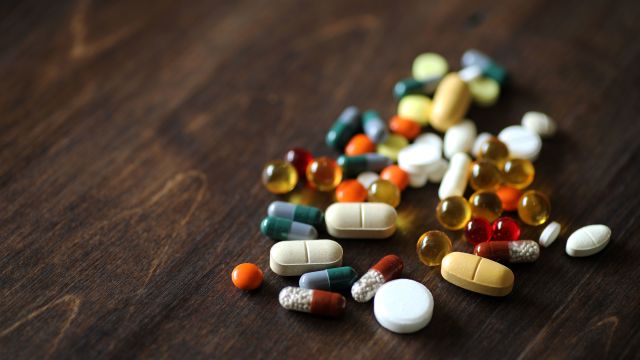Updated on February 10, 2025.
More than half of adults in the United States take dietary supplements, according to the Centers for Disease Control and Prevention. Many take two or more, and the number often increases with age.
A dietary supplement is intended to add or boost certain nutrients in your diet. It can come in many forms, including pills, capsules, powders, energy bars, gummies, and drinks. You can buy supplements in a drugstore or a supermarket. They are different from prescribed medications, which are drugs recommended by a healthcare provider (HCP) and picked up in a pharmacy.
Many supplements can help improve health and well-being. For example, folic acid helps prevent birth defects, like spina bifida and anencephaly. Calcium and vitamin D supplements can help improve bone health.
But not all supplements are beneficial. Among their potential drawbacks:
- Some don’t do what they claim and need research to back up their supposed benefits. For example, many weight-loss and sexual enhancement supplements simply don't work. They may have harmful side effects, as well.
- Certain supplements can get in the way of medications. Taking supplements with vitamins C or E can interfere with chemotherapy for people with cancer, for instance. And vitamin K supplements can work against the blood thinner warfarin.
- Some supplements may raise the risk of surgery complications, like bleeding and an altered response to anesthesia.
Before you buy a supplement, it’s key to gather information and consult with an HCP to learn about what you’re taking. Here are some important facts and helpful tips to get you started.
How supplements are regulated
Supplements are made by many different companies. Those manufacturers don’t have to follow the same strict regulations placed on prescription drugs. Their supplements aren’t approved for safety or effectiveness by the U.S. Food & Drug Administration (FDA) before they hit the shelves.
Instead, makers and distributors are responsible for their products. They can sell any supplement if they don’t claim it can treat, diagnose, prevent, or cure a disease. That would make it a drug by FDA standards.
To guide companies that make supplements, the FDA created a set of Good Manufacturing Practices (GMPs). Supplements must:
- Have good-quality production methods
- Be pure and free of potentially harmful substances
- Have an accurate ingredient label
Manufacturers don’t always follow this guidance. Many supplement labels are wrong, for example. In one 2023 study published in JAMA Network Open, 89 percent of 57 tested dietary supplements had inaccurate labels. About 12 percent contained ingredients prohibited by the FDA entirely.
The FDA can prevent a manufacturer from selling a supplement if it’s found to be unsafe. But this occurs only after it’s made available to consumers. That means impure and potentially unsafe products may be sold on websites and in stores.
How to protect yourself
Try these strategies to safeguard yourself and your loved ones from supplement troubles.
Look for reliable information
Whether you’d like to know about supplements in general or you have questions about a specific product, it helps to do some homework. Check government websites like the National Institutes of Health, or talk with your pharmacist or HCP.
You can also check the FDA’s database of supplement ingredients, which includes information about banned substances.
Beware of false claims
If a supplement’s label or packaging makes claims that sound outsized or fishy, follow your instincts. Don’t take it right away. Do some research and speak with an HCP. Remember that a person’s testimonial or a single study don’t mean much, and that science and research take time. Watch out for the word "natural," too. It doesn't always mean a supplement is safe.
Look for quality insurance
To help assure a supplement is of good quality, look for one made in a GMP-certified facility. There are also a few organizations that test supplements to make sure they contain the ingredients listed on the label. They also make sure there are no potentially harmful substances in the supplements. These groups include:
- ConsumerLab.com
- NSF International
- U.S. Pharmacopeia
Note that these groups don’t test for safety or effectiveness—simply that a supplement contains what it claims to contain.
Keep your healthcare provider informed
Talk with your HCP before you start taking any supplement. If you do begin using one, keep your HCP current on any changes in your medications and health status.
Follow directions carefully
Read all instructions and package warning labels before you take a supplement. Never combine them or take more than the recommended dose. Avoid substituting supplements for prescribed medication.
Women who are pregnant or nursing, people who have allergies to any ingredients, young children, and older adults should never take supplements without HCP approval. An HCP can also assess your risk of taking supplements with an existing condition or of combining it with other medications.
Get nutrients from food
Some people benefit from supplements. But many healthy adults can get the recommended vitamins and minerals from their diet alone, making supplements unnecessary.
Talk to an HCP, pharmacist, or dietitian about any supplements you're interested in taking. They can help you determine which supplements, if any, could be valuable for you.







